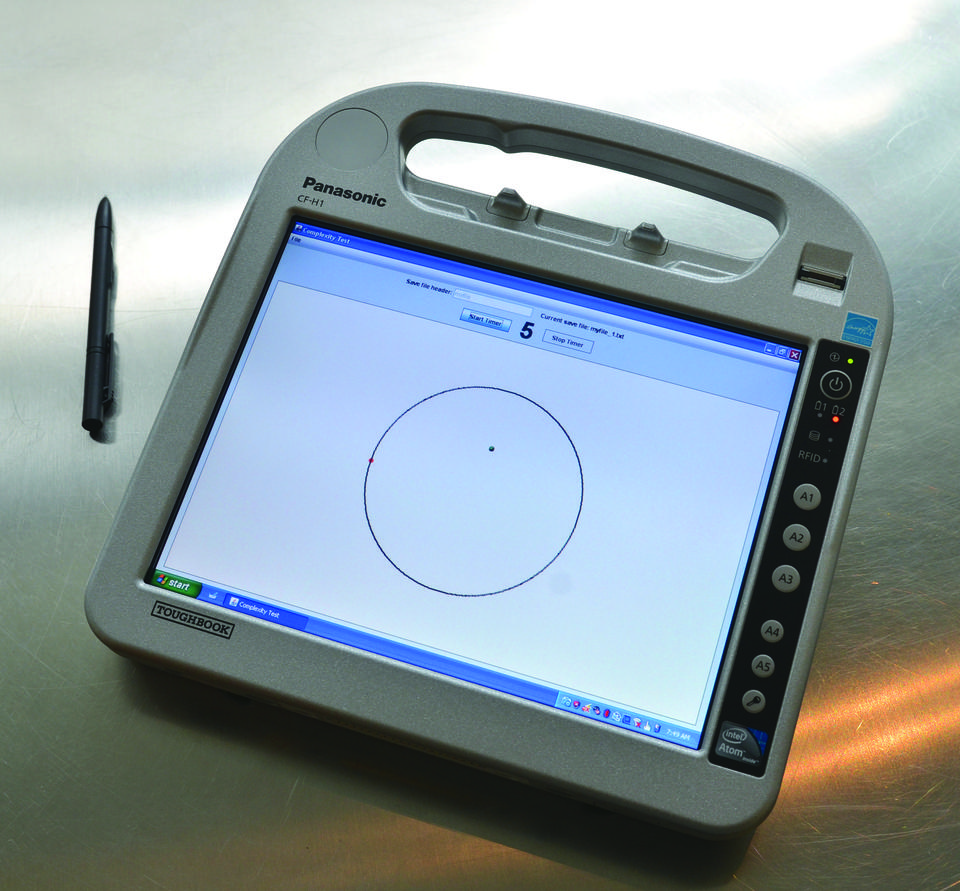
News
‘Deal with the Devil’: Harvard Medical School Faculty Grapple with Increased Industry Research Funding

News
As Dean Long’s Departure Looms, Harvard President Garber To Appoint Interim HGSE Dean

News
Harvard Students Rally in Solidarity with Pro-Palestine MIT Encampment Amid National Campus Turmoil

News
Attorneys Present Closing Arguments in Wrongful Death Trial Against CAMHS Employee

News
Harvard President Garber Declines To Rule Out Police Response To Campus Protests
New Device Monitors the Brain

Harvard researchers have developed the first quantitative neuromotor assessment device, an advancement which could have repercussions for fields ranging from sports medicine to Parkinson’s disease research.
After the first clinical study involving the new technology, researchers said that the results suggest that the device generates accurate quantitative results about neuromotor function, whereby sensory information is translated into body movement.
In the study, 150 participants ranging in age from 21 to 95 traced the perimeter of a circle using a stylus on an electronic tablet. Researchers then measured and analyzed a number of factors including the errors that subjects made in tracing the perimeter.
As researchers expected, older subjects showed an overall decrease in performance, a result which the study’s authors say demonstrates the efficacy of the device. Medical School professor Lewis A. Lipsitz, who was one of the study’s authors, said that the neuroassesment device provides an “integrated measure” of the multiple systems that interact to control movement but that are difficult to measure individually.
The study was a collaboration among researchers at Harvard’s Wyss Institute for Biologically Inspired Engineering, the Medical School-affiliated teaching hospital Beth Israel Deaconess Medical Center, and Hebrew SeniorLife, an elder care center based in Roslindale, Mass. The results of the study were published last week in an edition of the online Journals of Gerontology, Series A.
“A key aspect of physiology is [the question of] what makes systems resilient, robust, and able to withstand stress,” said Ary L. Goldberger, a Medical School professor and one of the study’s authors.
Medical School senior staff engineer Leia A. Stirling, the study author who led the project, said that researchers are currently using the device to study concussions. Their study involves running the device before and after an individual has sustained a concussion, she said.
Stirling said the device could be significant in the future because anyone—including coaches tending to athletes—can administer it. This usage could augment the current qualitative medical tests administered and interpreted by experts.
Researchers said the device may also be useful in providing a new quantitative way to measure rehabilitation.
“While experts have a lot of experience, they cannot easily quantify a defect in the control of movement,” Lipsitz said.
—Staff writer Alyza J. Sebenius can be reached at asebenius@college.harvard.edu. Follow her on Twitter @asebenius.
Want to keep up with breaking news? Subscribe to our email newsletter.
